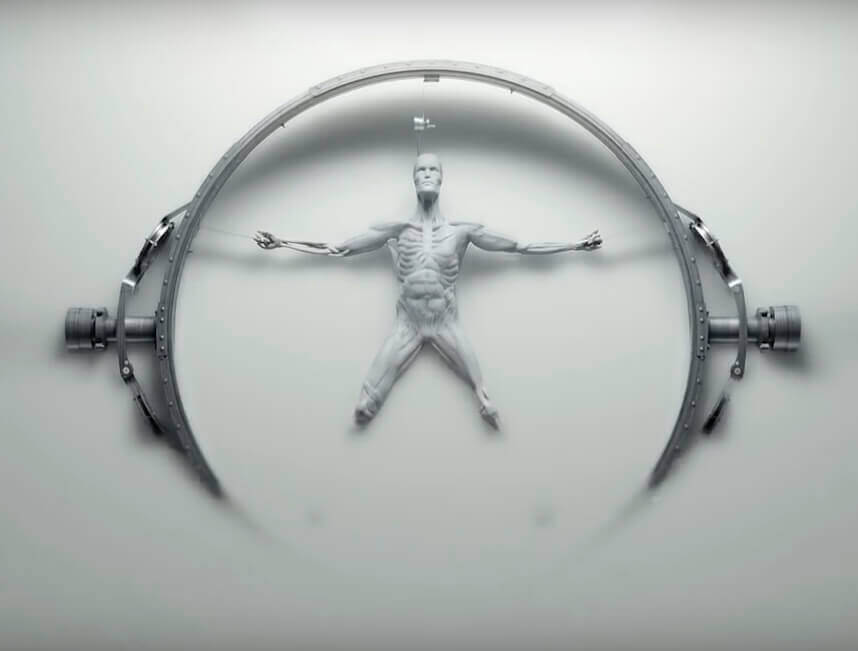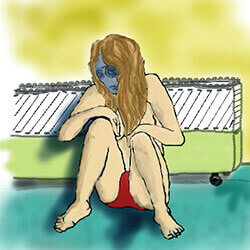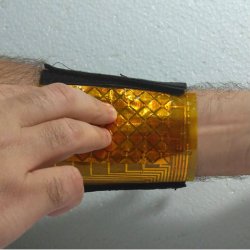New Territories but Rusty Spurs: A Review of HBO’s Westworld
Re-envisioning of the 1973 Sci-Fi film fails to impress this critic.

As a matter of full disclosure, it’s challenging, at the best of times, to review a TV series—and doubly early episodes: characters haven’t achieved any kind of dimension, story arcs are nothing but teasers, and the show hasn’t yet become comfortable with itself.
That being said, after watching the first two episodes of the Westworld—a new take on the 1973 Michael Crichton film—I’d have to give it a pretty clear meh.
No place to go but up
Not that the original was actually all that original, or at all really good to begin with: yet another take on the ancient trope of man’s creations running amok, this time in a futuristic amusement park named Delos. There the wealthy can indulge their wildest fantasies in three separate parks: Medieval World, Roman World, and the titular Westworld.
Populated by realistic androids that the guests can kill, or just have sex with, at any opportunity, it isn’t long before something (yawn) goes wrong. Our hero/guest, Richard Benjamin, soon becomes prey for one very-out-of-control robotic gunslinger, played by a literally steely Yul Brynner.
If anything can be said of the original, it’s that it set the stage for what has become a too-common cliche: the unstoppable killing machine. Schwarzenegger’s Terminator owes a lot to its relentless cowboy.
What with Game of Thrones’s end on the, albeit distant, horizon, HBO has decided to greenlight this new take on Westworld and hopefully give those fans of the Seven Kingdoms something else to obsess over.
Tired territories
Unfortunately, for them—and the rest of us—Jonathan Nolan and Lisa Joy Nolan have so far brought us a paint-by-numbers picture of a bowl of tapioca.
The first episode, “The Original,” does what it’s supposed to do: introduce us to the cast and set the stage. Like the original, Westworld is a futuristic theme park, and just like back in 1973 we know that soon the android “hosts” will eventually strip their gears and rebel against not just the management of the park but the visiting “guests” as well.
On paper the idea sounds intriguing, with lots of fascinating avenues to explore: the responsibility (or lack of) toward our creations; the ramifications of allowing people to live out their darkest fantasies, and perhaps become less human than the “hosts;” and all sorts of Three-card Monte games with players who might be real or synthetic.
At least the pilot does tackle the latter: as (spoiler’s ahead) we are misled that a new arrival to the frontier town is a “guest” when, ta-da, he ain’t. But this reveal also shows the major problems with the series so far: it doesn’t make a lick of sense—beyond that cheap shot at our expectations.
I’m not much a continuity nitpicker, but these first two episodes had so many glaring inconsistencies that it kept popping me out of the experience.
If not getting actually annoyed with the production.
Far-from-high technology
For example, we are told in one scene that it’s been 30 years since the park’s had a malfunction, yet in another scene the cooling system in the vault where the decommissioned androids is shown to have been out for god-knows-how-long—and if they hadn’t had any problems with the hosts then why is the vault there in the first place?
Then there’s the problem with technology. Looking past the clear “borrowing” of the android manufacturing process from Fallout 4 (which was inspired by DaVinci’s Vitruvian Man), you’d think a company, or a civilization, that could create androids capable of extremely complex interactions, if not self-awareness, would have fluorescent lights that don’t flicker—except for dramatic effect.
Then there’s the fact that the Westworld management, which can clearly look in on the park at any time, never raises an eyebrow at the psychotic “guest,” played by Ed Harris, who’s running around raping, scalping, and doing other unmentionable acts. True, “guests” are clearly able to do whatever they want to whatever they want, but Harris’s Man in Black’s actions still have an air of creepy secrecy—when supposedly everything can be monitored.
The second episode, “Chestnut,” does clear this up when we learn that the park does know what Harris is up to—but that he has carte blanche to do with as he pleases. Why the production decided to leave out this information out of the premiere is more than puzzling, except—yet again—as an intentional cheap dramatic shot at the audience.
Less-than-sexy sex
Jonathan Nolan and Lisa Joy Nolan are going solidly for their softcore audience: breasts are abundant and the gore is bright and sticky. But for all the “realism” of this fantasy world, the darkness is more jarring than provocative. Did we really need an all-but-seen moment of necrophilia in the premier episode?
Then there’s sex—and it, too, is a letdown. Westworld could have a huge amount of potential in exploring robots and sexuality yet, so far with these two episodes, it completely chickens out.
Yes, the breasts are out and about and, in “Chestnut” when the hooker-with-a-heart-of-gold Maeve (Thandie Newton) “wakes up” and begins to wander, naked, through backstage of the park but like with the brutality and cruelty—it all feels like nothing but callous titillation.
Never once has anyone mentioned why sex with one of the hosts is any different than with a human being. In fact, a character even uses the old idea that “if you can’t tell then it doesn’t matter.” If that’s the case then, aside from having the option to add murder to sex, what’s the big attraction? Rape, though, seems to be a major selling point for the park.
I can just image the sales brochure (shudder).
There are a few moments of same-sex play: a female guest gets a serious come-on from Maeve and in a rare actual sex scene we see what could be considered bisexuality in a group romp. But like everything else about Westworld, these two scenes ring cheap and hollow—and even homophobic. Heaven forbid there’d be actual gay sex—and not either a clumsy flirt or fratboy-comfortable softcore.
Again, the Nolans seem to show they threw aside any real opportunity for thoughtful and interesting exploration of sex and technology for formulaic writing, dull plotting, and tin-plated drama.
Oh, what it could have been—but, sadly, Westworld just isn’t.
Robots everywhere
Looking past these inconsistencies, missed opportunities, and the token edginess, the characters are where Westworld really fails. Paint-by-numbers feels like it might be too generous: we have the eccentric genius, played by Anthony Hopkins (and who got the biggest paycheck); the duplicitous and whiny “writer” of Westworld (Simon Quarterman); the might-as-well-be-an-android Manager (Sidse Babett Knudsen); the sensitive android programmer (Jeffrey Wright); plus a dozen or so forgettable minor characters who seem to only exist to be stupid.
Then there’s the question of, believe it or not, ethics.
You have a highly sophisticated and complicated amusement park full of quickly-becoming unstable androids, possibly hundreds if not thousands of guests, and tons of weaponry. Don’t you think someone, somewhere, would begin to ask the big question: what if something goes wrong?
Yet we have Hopkins and Wright not just becoming distractedly fascinated by their own creations—and working on their own secret agendas—but even hiding the host’s erratic behaviors from their even more erratic co-workers.
None of the Westworld employees appear in any way to be good people. We can only hope that when the bloodbath starts, the hosts will turn out to be better at being human than those who created them.
The ultimate disappointment resides in the fact that the creators are behind a really excellent show, one that has a lot of fun exploring the ramifications of technology such as artificial intelligences. Sadly, it’s like they took everything they’d learned with Person of Interest and threw it out into the dusty trail of Westworld.
There are a few things worthy of praise though: especially the use of a fly in the premiere’s opening and the closing scenes revealing the clearly awakening host, Dolores Abernathy (Evan Rachel Wood) was beautifully effective. The device would have been better, though, if it hadn’t been washed out by too many contrived and clumsy dramatic devices.
Stay tuned—maybe
Still, these first two episodes did succeed in one way: I will watch the next one—and maybe the next three or four: if just to see if my instincts are correct and the characters and the story will sadly go where they all seem to be programmed to go.
I can just hope that, like with the 1973 original, that they all manage to break free of their shoddy programming and do something really interesting.
But so far that doesn’t seem likely.
Image sources: HBO
3 comments
Leave a reply
You must be logged in to post a comment.


















perfect, i think the same